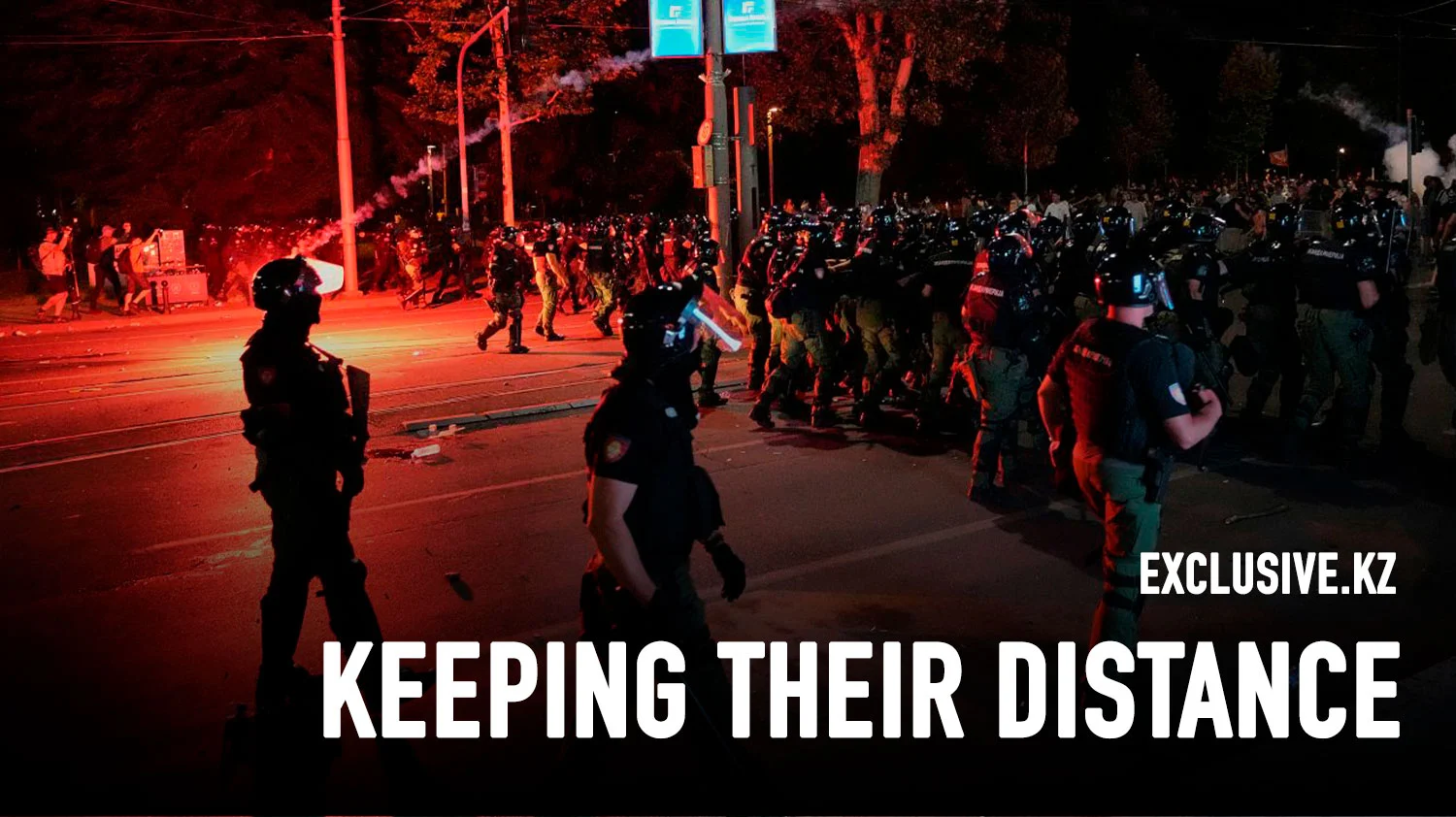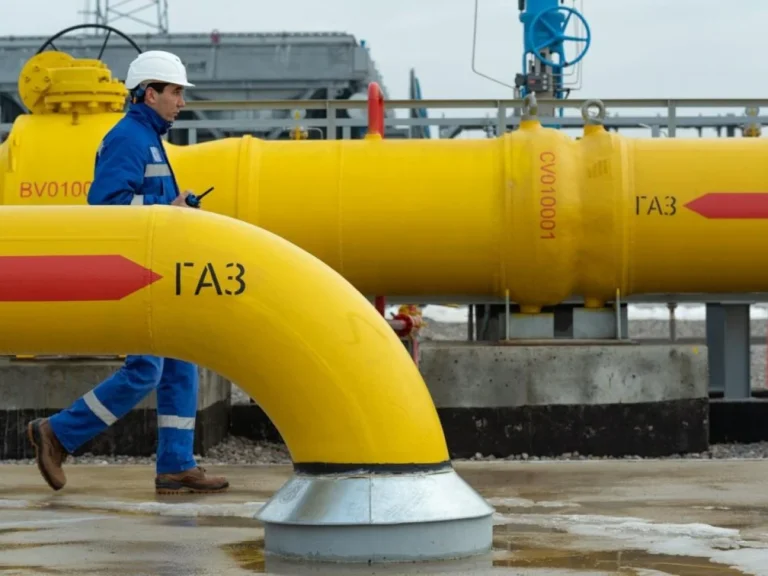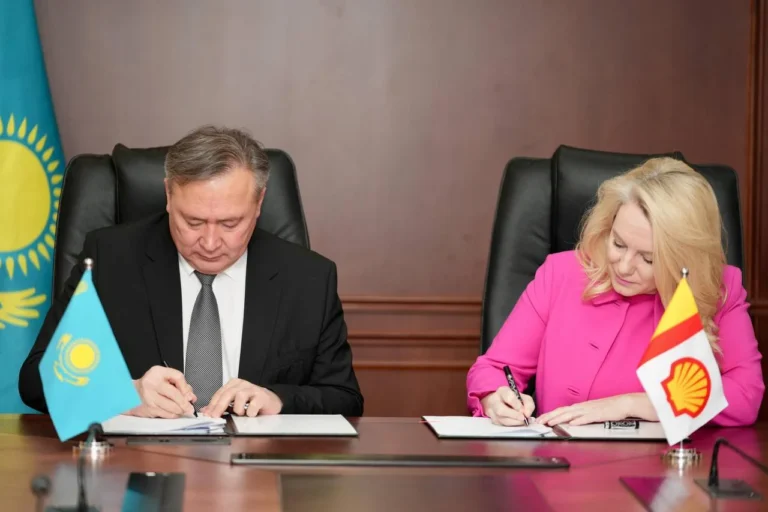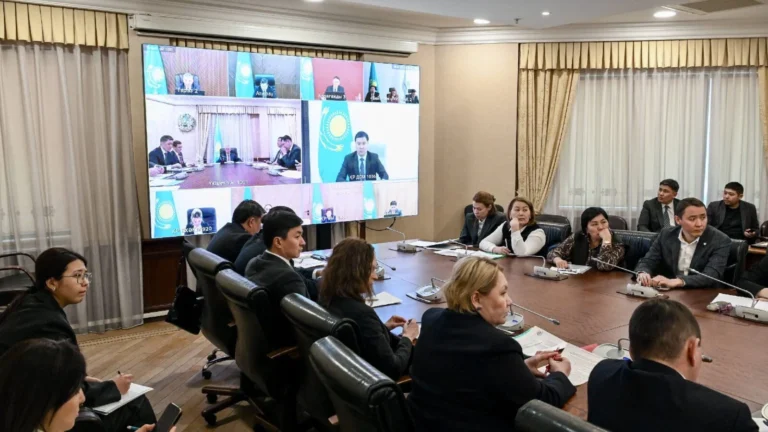The Next Steps for Serbia’s Protesters

Last November, the collapse of a canopy at the railway station in Novi Sad, Serbia’s second-largest city, killed 15 people (another person died in March from injuries sustained in the accident). The Serbian government’s reluctance to hold accountable those responsible for the shoddy construction – which many blame on widespread corruption and a lack of transparency – triggered massive student-led protests that continue today, and recently turned violent. Dozens of protesters have been injured in clashes with police and Serbian President Aleksandar Vučić’s loyalists, while hundreds more have been detained.
Despite initially keeping their distance from politics, student protesters are now demanding early parliamentary elections. While Vučić and his Serbian Progressive Party (SNS) used to see an early vote as a way out of the crisis, they now actively oppose the idea, acutely aware of their loss of support among the electorate – according to a recent poll, the SNS trails the student-led opposition by 12 to 15 percentage points.
But Vučić and the SNS seem to be slowly acquiescing to the students’ demands, with several Serbian media outlets recently reporting that elections might be held by year’s end. To prepare for that possibility, the opposition must change its approach – prevailing in the electoral arena is not the same as mobilizing in the streets.
First, the protesters are right that elections in Serbia are neither free nor fair. But expecting Vučić to create a level playing field, which some in the opposition consider a precondition for participating in the elections, is delusional. Western actors increasingly lack the willingness and capacity to promote democracy abroad, a trend that has intensified with Donald Trump’s return to the White House. Vučić thus faces little pressure to improve electoral integrity, and influencing the outcome – as many expect him to do – is unlikely to damage his regime’s international legitimacy.

The opposition must therefore develop creative and effective ways to counter the regime’s electoral manipulation. To do so, they should learn from the 2000 elections in Yugoslavia, when the opposition party’s discovery and thorough documentation of the regime’s efforts to rig the outcome contributed to the toppling of Serbian strongman Slobodan Milošević. To ensure that the next election is as competitive as possible, the protesters must work with civil-society organizations to expose electoral violations early and often.
Second, the opposition should outline a compelling vision for the future, rather than merely emphasizing the shortcomings of the Vučić regime, which has remained in power since 2012 largely because of the president’s appeal to ethnonationalism. Vučić portrays himself as the savior and defender of an endangered Serbian nation, while depicting the demonstrators as traitors waging a “color revolution” on behalf of foreign powers.
Ignoring this narrative would be a grave mistake. But the opposition would make an even bigger mistake if it sought to “prove” its patriotism by becoming more ethnonationalist than Vučić, as it has attempted to do on several recent occasions. Instead, the protesters should develop their own patriotic narrative, one that is based on inclusive values and reclaims national symbols from Vučić and the SNS.
Such symbols have featured heavily in the demonstrations. They can justifiably be used in the fight against Vučić, so long as they represent a Serbia that stands for the rule of law and pluralism, and do not endorse Vučić’s vision of a Serbia victimized by Western powers and hostile neighbors.
Third, the opposition should prepare for the possibility that it will need to defend its electoral victory in the streets. That means beginning to campaign now in European capitals to ensure that Serbia’s democratic allies do not recognize a stolen election. The opinions of European officials carry significant weight among Serbia’s government and business leaders, because its economy is so dependent on European Union trade and investment.
This is especially important because European leaders will not automatically back the Serbian opposition, which includes parties that have loudly opposed EU integration. And despite his frequent accusations that Western countries are trying to topple his government, Vučić has many allies in the EU – unlike Milošević, an international pariah in 2000 who died in The Hague while on trial for war crimes he was accused of committing in Kosovo, Bosnia, and Croatia.
When European Commission President Ursula von der Leyen visited Belgrade last October, she praised Serbia, one of the world’s most rapidly “autocratizing” countries, for its progress toward EU membership. With the bloc’s approach to foreign policy now guided more by its geopolitical and economic interests than by its values, one could imagine it recognizing the results of an election stolen by Vučić, assuming the vote rigging wasn’t too blatant. Concerns about democratic standards may be set aside to prevent Serbia from embracing Russia, or to secure access to its lithium reserves.
As EU leaders resist Trump’s attempts to sell out Ukraine, they would do well not to adopt a similarly cynical approach to Serbia. To remind the bloc of its support for democratic norms, Serbia’s student protesters should begin establishing links with European leaders now and, when the time comes, clearly document any cases of electoral manipulation. This outreach, coupled with a political vision that promotes the rule of law and pluralism, could decide the fate of Serbia’s opposition – and their dogged campaign against an autocratic and corrupt regime.
Copyright: Project Syndicate, 2025. www.project-syndicate.org





Все комментарии проходят предварительную модерацию редакцией и появляются не сразу.